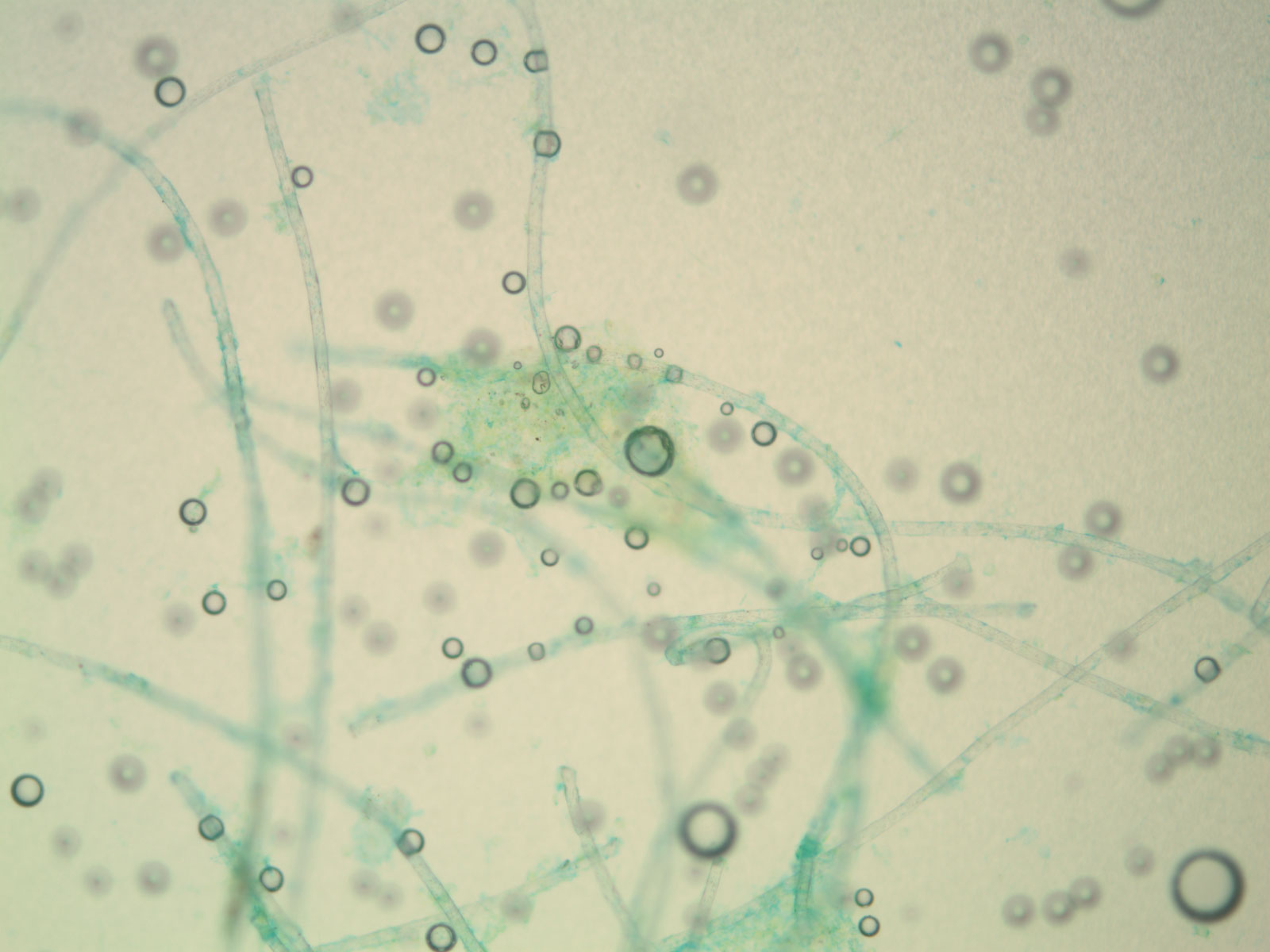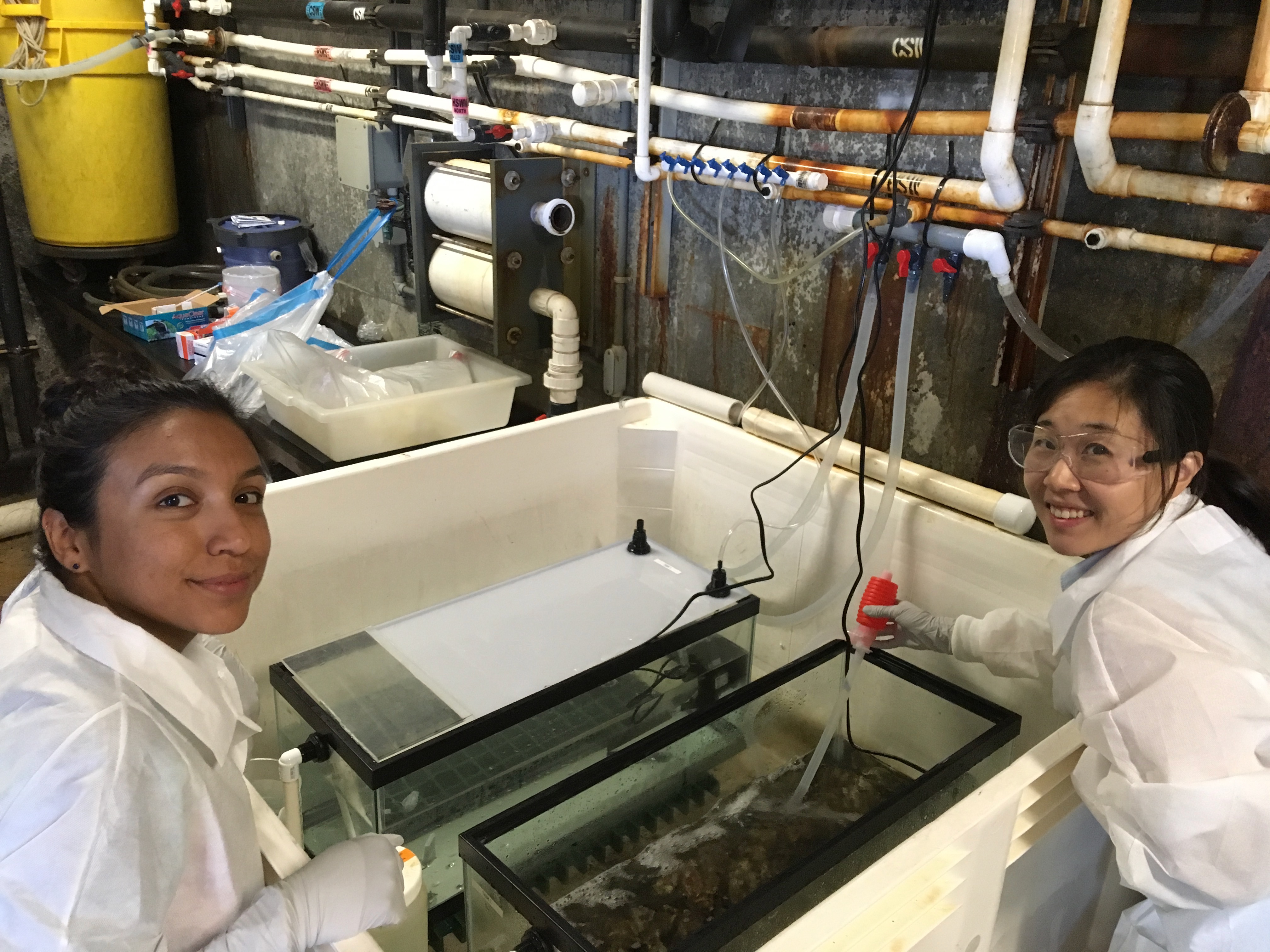Research
Active research projects in our laboratory include:
Land-to-Sea Parasite Transmission
Collaborators: Jonathan Eisen (UCD), Liz VanWormer (UNL), Seth Newsome (UNM), Tim Tinker (Nhydra Ecological) and many amazing colleagues from the California Department of Fish and Wildlife, United States Geological Survey, The Marine Mammal Center and Monterey Bay Aquarium

Through support from the joint NIH/NSF program on Ecology and Evolution of Infectious Diseases, we are investigating how harmful parasites from land animals—like cats and opossums—end up infecting marine mammals such as southern sea otters. These parasites, including Toxoplasma gondii and Sarcocystis neurona, travel from land to the ocean through rain-driven runoff that carries fecal waste to the nearshore. Once in the marine environment, we suspect that certain underwater habitats—like kelp forests and seagrass beds—may act as hotspots where more dangerous strains of parasites collect and persist. This is a key hypothesis we are actively testing. Interestingly, the types of parasites found in sea otters don’t always match those in land animals, suggesting that environmental stressors along the land-sea continuum or perhaps ocean conditions might influence which strains survive and infect marine hosts. By combining fieldwork, genetic tools, and environmental modeling, our research aims to understand how different coastal habitats shape the movement and survival of these parasites. This work could transform how we think about disease risks in coastal ecosystems and help protect both marine life and public health

Plastic and pathogen pollution: A dangerous mixture
Collaborators: Chelsea Rochman, Minji Kim, Jim Moore, Elizabeth VanWormer
Plastic debris, in particular microplastics, is increasingly recognized as a global contaminant that is ubiquitous in the oceans. Compared with chemical contaminants, limited data exist on the presence of harmful pathogens as ‘hitchhikers’ on microplastics, and how microplastics may serve as vectors for pathogens in the marine environment. Investigating the association between pathogens and microplastics and subsequent impact on seafood safety was recently highlighted as an essential research need by the United Nations. Specifically, the potential interaction between microplastics and terrestrially derived, zoonotic pathogens, which can infect both animals and humans, is completely unknown. This project will provide critical data on the ability of microplastics to mediate the transport and distribution of zoonotic protozoan pathogens in the marine environment and will identify how the presence of microplastics may enhance the ability of these pathogens to infect marine wildlife. This project would also provide valuable information to shellfish producers and agencies charged with food safety, such as the Office of Environmental Health Hazard Assessment, particularly in respect to the length of time needed for oysters to clear the microplastics and pathogens from their tissues. MORE INFORMATION
Protozoan pathogens and seafood safety

Collaborators: Stefan Wuertz, Minji Kim, Graham McBride, Jim Moore
This project targets four protozoans identified as neglected pathogens in the context of seafood safety: Cryptosporidium, Giardia, Cyclospora, and Toxoplasma. The overall goal of this project is to develop and validate novel molecular methods for i) efficient screening of shellfish to simultaneously identify these four parasites; and ii) discrimination of viable parasites that can cause illness from dead organisms that are detectable but no longer infectious. We additionally aim to quantify the risk of contracting parasite-borne disease from consumption of oysters using a multi-step program that evaluates different production and distribution stages within the shellfish industry- from sea to table. This analysis tool will then enable the identification of key steps within the food supply chain where intervention strategies can most effectively reduce this risk. Our work will support the aquaculture industry through building capacity to detect important, yet under researched, protozoan pathogens in shellfish tissues, growing waters, and watersheds draining overland runoff into coastal habitats. Seafood consumers will also benefit from the availability of new methods that can efficiently test food commodities and ensure that shellfish do not harbor viable parasites than can cause illness. READ HERE
